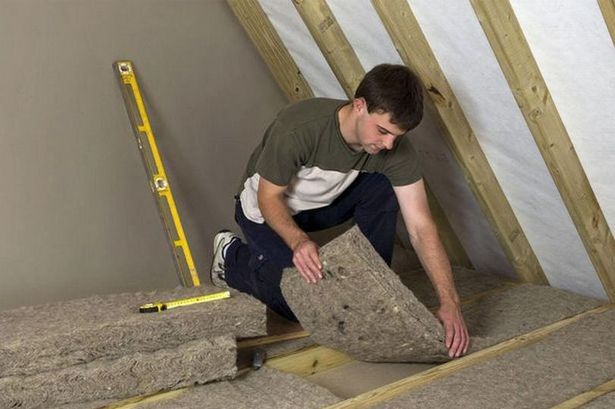Energy bills for 15 million households will increase by at least £139 to a record high under Ofgem’s latest price cap as suppliers grapple with soaring wholesale prices.
The regulator decided in August that energy customers on default tariffs paying by direct debit will see the sharpest jump in prices since the cap was introduced in January 2019, taking average bills to £1,277. Pre-payment customers will see annual costs rise by £153, from £1,156 to £1,309.
Although households that shop around and sign up to fixed plans with other suppliers are not subject to the price cap, the recent wholesale hikes have seen firms deterring new customers and hiking the cost of their fixed plans significantly above the price cap.
However, new research from Norton Finance has discovered that consumers are turning to energy-saving home improvements to combat the rising costS and they’re not as steep as you may think.
The study ranks the most cost-effective ways the average mid-terrace householder could save on energy bills after five years by installing different types of insulation.
Draught-proofing
What you will spend: £3
How much you could save: £215
Draught-proofing is one of the cheapest and most effective ways to save energy and money.
DIY draught-proofing starts at under £3 for a roll of self-adhesive draught-excluding tape.
Block up unwanted gaps around windows, doors and chimneys that lets cold air in and warm air out.
Doing this could save around £215 on fuel after 5 years.

(Image: Getty)
Roof insulation
What you will spend: £285
How much you could save: £500
Just like going out in cold weather without a hat, as much as a quarter of heat can be lost if your roof isn’t insulated.
The loft of a mid-terrace house costs around £285 to insulate with 270mm insulation, saving you as much as £500 on bills after five years. You will also reduce your carbon footprint by about 530kg every year.
Wall insulation
What you will spend: £400
How much you could save: £500
About a third of heat is lost from walls of uninsulated houses. The age of your home will usually determine the type of walls you have, and this in turn affects the cost of insulation.
Solid walls let twice as much heat escape as cavity walls. While insulating solid walls can be more expensive, the savings on your heating bills will also be bigger. Insulating the walls of an average mid-terrace house costs under £400, with savings of just under £500 after five years, saving 415kg of carbon each year.
Upgrade your boiler
What you will spend: £2,500
How much you could save: £850
Boilers are improving in energy efficiency all the time. If you haven’t had a new boiler in the last 10 years, replacing it with a newer model could cost around £2,500, but you could save more than £850 on bills within five years if you’re in a mid-terrace house.
Not only that, a new boiler will reduce your household’s carbon footprint by 1.92 tonnes of CO2 every year.
Replace your windows
What you will spend: £4,350
How much you could save: £850
Some 20 per cent of heat can be lost through standard windows. Invest in energy-efficient double-glazed windows to make savings of up to £850 in heating bills over five years, and 80kg of carbon per year.
Installation costs average out at around £4,250 for A-rated PVC windows in the average semi, compared to around £15,000 for A-rated hardwood windows.
Double glazed windows can reduce the CO2 emissions of a typical household by three quarters of a tonne every year.
Install solar panels
What you will spend: £4,800
How much you could save: £1,650
These days, an average solar set-up will cost £4,800 all-in, but if you’re a householder who is home all day, it’s estimated that a 3.5kW panel will save you £330 a year – that’s around £1,650 over a five-year period.
Not only that, but a typical solar panel also saves over 900kg of CO2 per year.
Most homes have upwards of 12 panels – that’s 10.8 tonnes of carbon saved every year, not to mention money paid back to you thanks to the smart export guarantee.
How to keep up to date with the latest Record Money news

Did you know there are a number of ways you can stay up to date with the latest money saving and benefits news from the Daily Record?
You can join the conversation on our Money Saving Scotland Facebook group for money-saving tips, benefits news, consumer help and advice plus the latest shopping deals.
Sign up to our weekly Record Money newsletter to get our best stories sent straight to your inbox. You can sign up either by entering your email address in the sign up box further up this page or click here.
You can also follow our Twitter account @Recordmoney_ for regular updates here.
Norton Finance estimates that by doing all of these, and choosing a boiler upgrade over solar panel installation, could save homeowners nearly £3,000 on energy bills within five years at today’s costs.
Swapping to solar panels could potentially save you almost £4,000 over the same five-year period.
Find out more about home improvement loans at www.nortonfinance.co.uk/loans/home-improvement-loans
Get the latest money saving and benefits news sent straight to your inbox. Sign up to our weekly Money newsletterhere.




